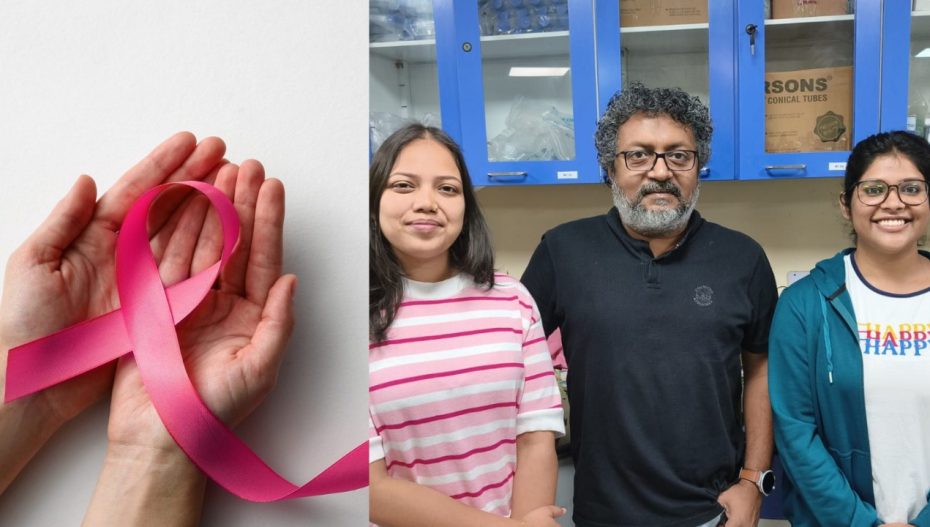A team of researchers from the Indian Institute of Technology (IIT) Guwahati and the Bose Institute in Kolkata has developed an advanced injectable hydrogel for targeted breast cancer treatment. This hydrogel-based therapy delivers anti-cancer medications directly to tumour sites, significantly reducing the side effects typically associated with conventional cancer treatments such as surgery, which is not feasible for internal organs and chemotherapy, which often results in harmful side effects.
Hydrogels are water-based, three-dimensional polymer networks that absorb and retain fluids. Their distinctive structure mimics living tissues, making them ideal for biomedical applications.
Professor Debpratim Das from the Department of Chemistry at IIT Guwahati explained that the newly developed hydrogel functions as a stable reservoir for anti-cancer drugs and releases them in a controlled manner, responding to specific conditions in the tumour microenvironment.
Composed of ultra-short peptides – biocompatible and biodegradable protein building blocks – the hydrogel is designed to remain insoluble in biological fluids, ensuring it stays localised at the injection site.
It reacts to elevated glutathione (GSH) levels, a molecule that is abundant in tumour cells. Upon encountering high GSH levels, the hydrogel triggers a controlled release of the drug directly into the tumour, minimising its interaction with healthy tissues and reducing systemic side effects.
This research demonstrates how scientific innovation can directly address the urgent needs of cancer treatment. The hydrogel’s unique properties allow it to operate in synergy with the biological environment, providing precision where it is most needed. The team is thrilled by its potential to change the approach to localised drug delivery.
In preclinical trials, the team tested the hydrogel on a murine model of breast cancer. The results were striking. Within 18 days, a single injection of the hydrogel, loaded with the chemotherapy drug Doxorubicin, led to a 75% reduction in tumour size.
Importantly, the hydrogel remained confined to the tumour site, releasing the drug steadily over time without causing detectable side effects in other organs.
This innovative delivery system enhances the drug’s effectiveness while reducing the required dosage, thus minimising toxicity.
Further laboratory studies showed that the hydrogel improves drug uptake by cancer cells. It also induces cell cycle arrest and promotes programmed cell death, thereby attacking tumours on multiple fronts.
Also Read: Gujarat to Conduct First-Ever Coastal-Wader Bird Census in Jamnagar













